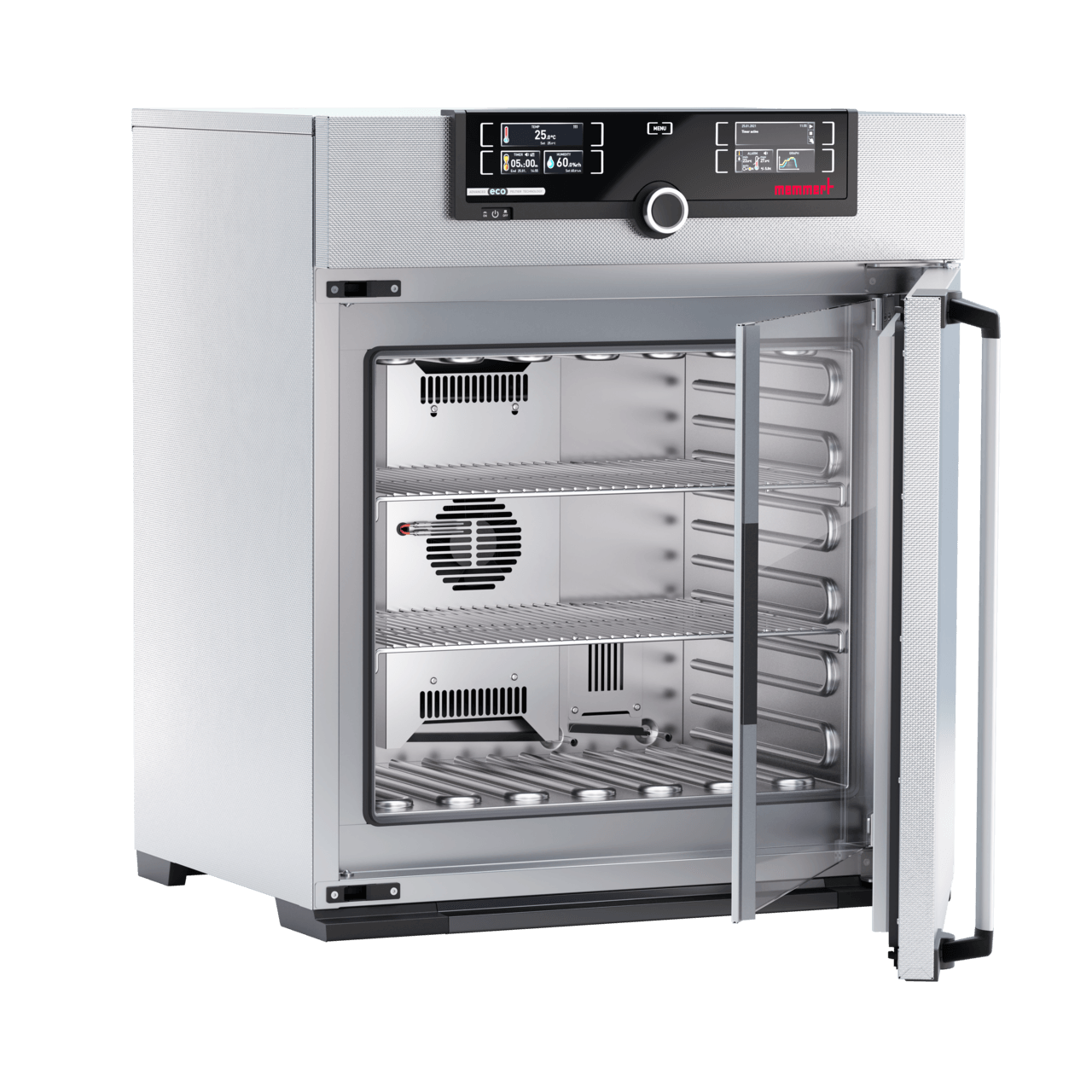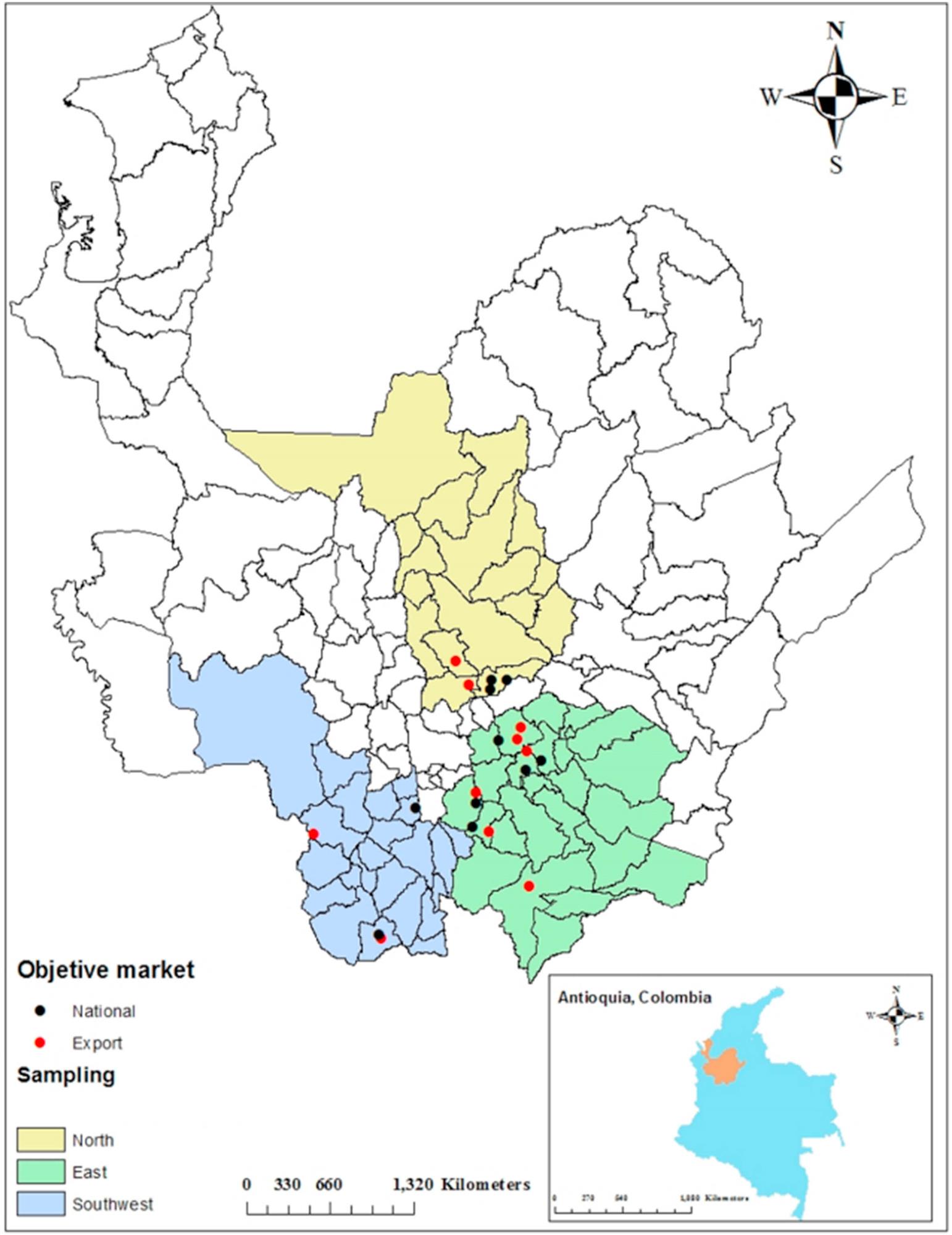
Post-harvest diseases and disorders in Hass avocado crops: A study in Antioquia, Colombia
The Memmert constant climate chamber HPP110 is used in a new study identifying 4 post-harvest diseases in Hass avocados & linking them to pre & post-harvest agronomic practices.
The avocado is a popular fruit with increasing demand worldwide. Colombia is one of the top avocado producers but post-harvest diseases and disorders such as anthracnose, stem-end rot, chilling injury and irregular ripening can affect the quality of the fruit. To understand the factors that affect post-harvest diseases and disorders, researchers studied Hass avocado crops in Antioquia, Colombia, using a Memmert constant climate chamber HPP110.
This study from 2021 found that the incidence of post-harvest diseases and disorders in avocado cv. Hass was linked to pre- and post-harvest agronomic practices, including dry matter content and temperature. The study identified 4 diseases and disorders and the presence of microorganisms like Colletotrichum gloeosporioides, L. theobromae and Phomopsis sp.
>Materials and methods
>Location and study area
In 20 avocado plots in Antioquia, Colombia, Hass avocado trees were surveyed for diseases and disorders. The trees were all over 5 years old, grafted on West Indian rootstock and planted at various distances. Research was conducted between 2014-2016 during 6 fruit harvest cycles. Crop management followed farmer indications. Samples were analysed in two labs at the Universidad Nacional de Colombia in Medellín.

Localisation of the avocado plots evaluated
Post-harvest diseases & disorders in Hass avocados characterised using Memmert climate chamber
Polyphasic characterisation is a multi-step process used to diagnose plant diseases and disorders. In a study of post-harvest diseases in avocados, a sample of 30 fruits were collected from each plot and transported to the laboratory. The fruits were packed in cardboard boxes and ripened in a Memmert climate chamber HPP110 at 20 ± 1 °C and 90 usmn; 2% relative humidity. The ripening process was divided into three phases: hard to softening, firm-ripe to soft-ripe, and over-ripe to very over-ripe. In each phase, destructive samplings were made for the identification of pathologies. The pathogenicity tests of fungal and bacterial isolates were conducted on healthy pieces of fruit. The inoculation was performed using two methods: spraying an aqueous suspension of the infective propagules or placing a fragment of tissue and culture directly on the fruits. The isolated microorganisms were incubated at 25°C for 15 days in different media.
Rise in post-harvest diseases & disorders among Hass avocado crops for both export & domestic markets
Fruits were collected from avocado plots using random sampling and analysed for post-harvest diseases & disorders based on size, colour, texture, etc. Fruits were pre-selected, placed in disinfested boxes and processed for national or export markets. For export, fruits were treated with fungicide and pre-cooled before storage at 5°C for 15 days, then at 10°C. For the national market, fruits were stored at 20°C for 8 days, then at 10°C. Ripening was monitored based on skin colour and firmness; abiotic disorders were determined by visual inspection and lab analysis.
Post-harvest disease & disorder incidence in avocado cv. Hass crops linked to pre & post-harvest agronomic practices
Chemical characterisation of avocado crops (cv. Hass) was done by collecting random samples of leaves and fruits from the middle third of each tree and determining dry matter by incubating mesocarp at 60°C. Potassium, calcium and magnesium were quantified by atomic absorption after acid digestion of dried samples of epicarp and leaves. Soil samples were collected and ratios of Ca/K, Ca/Mg, K/Mg, and Ca+Mg/K were calculated using data of nutrients from soil, leaves and fruits. Crop management practices were obtained through a survey and answers transformed into dichotomous values.
Results
Avocado cv. Hass fruits were identified with post-harvest diseases and disorders, including anthracnose, stem-end rot, chilling injury, flesh bruising, irregular ripening, lenticel damage, dehydration, seed malformation and necrosis. Lesions and symptoms were observed on the fruit's epidermis and mesocarp; different temperatures and dry matter content affected their reproduction and incubation periods. Microbiological analysis revealed the presence of different microorganisms, including Colletotrichum gloeosporioides sensu lato, L. theobromae, Rhizopus stolonifer, Pestalotiopsis oxyanthi and Phomopsis sp. that were identified based on morphological characteristics and gene sequences.
Conclusion
The study identified 4 post-harvest diseases and disorders in avocado cv. Hass: anthracnose (caused by Colletotrichum gloeosporioides), stem-end rot (caused by multiple microorganisms), chilling injury, irregular ripening (related to high/low dry matter content and high ripening temperature), lenticel damage (potentially caused by friction) and dehydration (related to water loss). The study found the highest incidence of stem-end rot in export plots and a lower incidence of anthracnose in plots treated with post-harvest Prochloraz. The aetiology of seed malformation and necrosis was not fully established but potentially related to the El Niño climatic phenomenon. The incidence of post-harvest diseases and disorders in different countries may vary due to local edaphoclimatic conditions, plant genotype, pathogen populations and agronomical practices.
About the Memmert constant climate chamber HPPeco
Memmert's constant climate chamber HPPeco is designed to provide a stable and controlled environment for a wide range of applications including material testing, research and quality control. The chamber features highly precise temperature and humidity settings, a large interior volume and easy-to-use digital controls. In addition, it includes a built-in light and data logger to ensure accurate and consistent results. Memmert's constant climate chamber also offers a variety of options including automatic door opening and multiple shelves for various samples. The chamber is made of high-quality materials to ensure long-lasting performance and durability. It is available in different sizes and temperature ranges.
